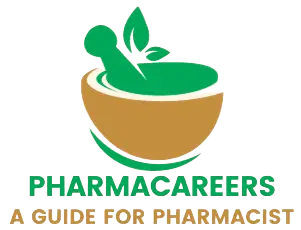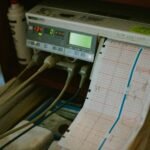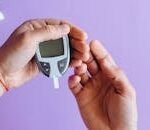Pharmacy Practice MCQ, in this article we will solve, Practice MCQ on the topic, Pathophysiology of diseases of Endocrine System. Read following article for your reference.
Pathophysiology of Endocrine System Diseases
Which cells are destroyed in Type 1 diabetes?
- A) Alpha cells
- B) Beta cells
- C) Delta cells
- D) Gamma cells
What is a common trigger for the autoimmune response in Type 1 diabetes?
- A) Bacterial infection
- B) Viral infection
- C) Fungal infection
- D) Parasitic infection
Which of the following is NOT a symptom of Type 1 diabetes?
- A) Polyuria
- B) Polydipsia
- C) Polyphagia
- D) Weight gain
What characterizes Type 2 diabetes?
- A) Insulin resistance
- B) Insulin deficiency
- C) Both A and B
- D) Neither A nor B
Which factor is most associated with the development of insulin resistance in Type 2 diabetes?
- A) Underweight
- B) Central obesity
- C) High protein diet
- D) Low carbohydrate diet
Which of the following is a long-term complication of diabetes?
- A) Retinopathy
- B) Nephropathy
- C) Neuropathy
- D) All of the above
What is the most common cause of hypothyroidism?
- A) Graves’ disease
- B) Hashimoto’s thyroiditis
- C) Toxic nodular goiter
- D) Excessive iodine intake
Which hormone levels are reduced in hypothyroidism?
- A) TSH
- B) T3 and T4
- C) ACTH
- D) Cortisol
Which symptom is NOT associated with hypothyroidism?
- A) Fatigue
- B) Weight gain
- C) Heat intolerance
- D) Bradycardia
What is a potential severe complication of untreated hypothyroidism?
- A) Thyroid storm
- B) Myxedema coma
- C) Osteoporosis
- D) Hypercalcemia
What is the primary cause of Graves’ disease?
- A) Autoimmune response
- B) Iodine deficiency
- C) Viral infection
- D) Genetic mutation
Which symptom is commonly seen in hyperthyroidism?
- A) Weight loss
- B) Cold intolerance
- C) Bradycardia
- D) Constipation
What is a life-threatening complication of hyperthyroidism?
- A) Myxedema coma
- B) Thyroid storm
- C) Addisonian crisis
- D) Cushing’s syndrome
Which condition is characterized by hyperandrogenism and insulin resistance?
- A) Hypogonadism
- B) Polycystic Ovary Syndrome (PCOS)
- C) Addison’s disease
- D) Cushing’s syndrome
Which symptom is NOT associated with PCOS?
- A) Irregular menstrual cycles
- B) Hirsutism
- C) Acne
- D) Hyperpigmentation
What is a common complication of PCOS?
- A) Type 2 diabetes
- B) Hyperthyroidism
- C) Addison’s disease
- D) Hypoparathyroidism
What is the primary cause of primary hypogonadism?
- A) Pituitary dysfunction
- B) Testicular or ovarian failure
- C) Hypothalamic dysfunction
- D) Adrenal insufficiency
Which hormone is reduced in male hypogonadism?
- A) Estrogen
- B) Progesterone
- C) Testosterone
- D) Cortisol
Which symptom is NOT associated with male hypogonadism?
- A) Decreased libido
- B) Erectile dysfunction
- C) Gynecomastia
- D) Hirsutism
Which symptom is commonly seen in female hypogonadism?
- A) Irregular menstrual cycles
- B) Increased muscle mass
- C) Hyperpigmentation
- D) Tachycardia
What is a long-term complication of untreated hypogonadism?
- A) Osteoporosis
- B) Hyperthyroidism
- C) Addison’s disease
- D) Cushing’s syndrome
Which gland is primarily responsible for regulating metabolism?
- A) Pituitary gland
- B) Thyroid gland
- C) Adrenal gland
- D) Pancreas
Which hormone is primarily involved in glucose uptake by cells?
- A) Glucagon
- B) Insulin
- C) Cortisol
- D) Adrenaline
Which condition is characterized by excessive thyroid hormone production?
- A) Hypothyroidism
- B) Hyperthyroidism
- C) Addison’s disease
- D) Cushing’s syndrome
Which hormone is deficient in Addison’s disease?
- A) Cortisol
- B) Thyroxine
- C) Insulin
- D) Testosterone
Which hormone is primarily involved in the stress response?
- A) Insulin
- B) Cortisol
- C) Thyroxine
- D) Estrogen
Which condition is associated with insulin resistance?
- A) Type 1 diabetes
- B) Type 2 diabetes
- C) Addison’s disease
- D) Hypothyroidism
Which hormone is produced by the adrenal medulla?
- A) Cortisol
- B) Aldosterone
- C) Adrenaline
- D) Thyroxine
Which condition is characterized by low levels of sex hormones?
- A) Hyperthyroidism
- B) Hypogonadism
- C) Cushing’s syndrome
- D) Addison’s disease
Which hormone regulates calcium levels in the blood?
- A) Insulin
- B) Parathyroid hormone
- C) Cortisol
- D) Thyroxine
For more regular updates you can visit our social media accounts,
Instagram: Follow us
Facebook: Follow us
WhatsApp: Join us
Telegram: Join us







One response to “Pharmacy Practice MCQ”
[…] You can solve practice MCQ on above topic, click here. […]